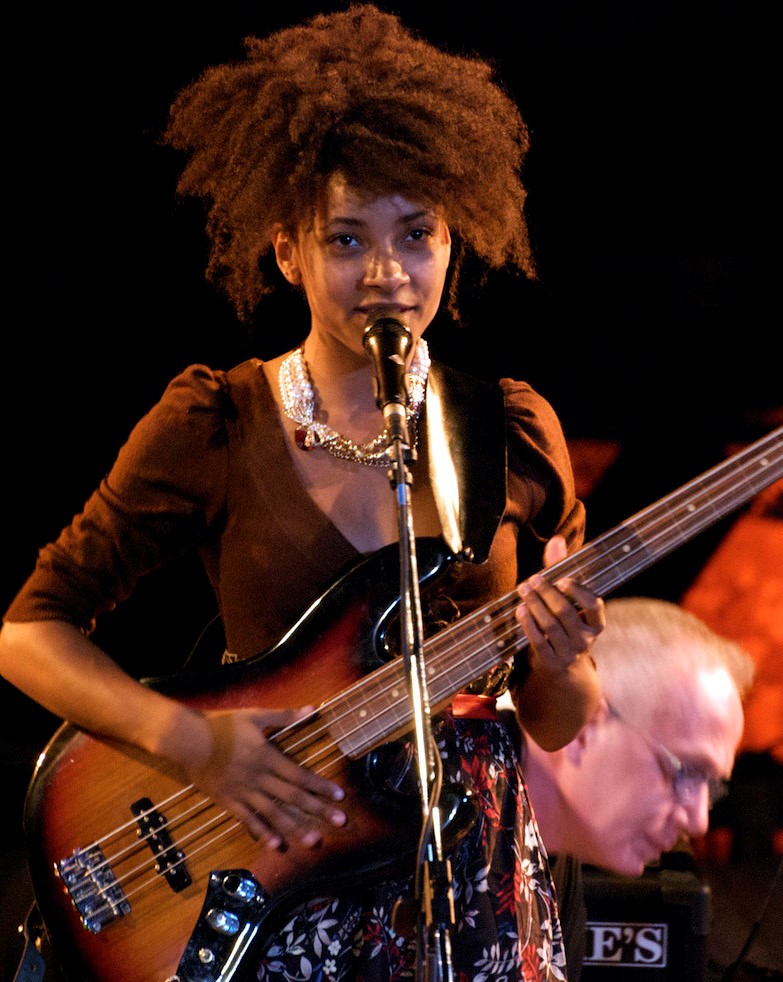Let it play in the background as you study and immerse yourself in this topic!
Esperanza Spalding, a composer, librettist, bassist, lyricist, violinist, and vocalist, quickly emerged as one of the most successful jazz artists of the 21st Century. She was born Esperanza Emily Spalding on October 18, 1984, in Portland, Oregon, to an African American father and a mother of American Indian, Hispanic, and Welsh ancestry. She has an older brother, Hoben Spalding.
Spalding, a gifted child, debuted at five as a violinist in the Chamber Music Society of Oregon while attending King Elementary School. At 15, she was concertmaster with the ensemble. Spalding enrolled at Portland State University at 16 in 2001 but transferred later that year to Berklee College of Music in Boston, Massachusetts, where she earned a Bachelor of Music degree in three years, supported in part by a Boston Jazz Society scholarship. In 2004, Berklee hired her at 20, becoming the youngest instructor in the conservatory’s history.
In 2006, Spalding’s debut album, Junjo, was released on the Ayva Musica label. She next released Esperanza with the Heads Up label. In 2007, at age 23, she was on stage at the Umbria Jazz Festival in Perugia, Italy, the world’s most celebrated jazz forum. This presentation was followed by a performance two years later at U.S. President Barack Obama’s Nobel Peace Prize Award Ceremony in Oslo, Norway.
In 2010, Spalding released her third album, Chamber Music Society, which peaked at No. 34 on the Billboard Jazz chart. It remained on the chart for 70 weeks, partly leading to her winning her first Grammy Award for Best New Artist in the Jazz category in 2010. The following year, 2011, she performed at the Montreux Jazz Festival in Switzerland and won a second Grammy for “Best New Artist” overall, becoming the first jazz musician to win in that category. In 2012, Spalding won a third Grammy for the album Radio Music Society, which peaked at No. 10 on the Billboard 200 chart, and won “Best Jazz Vocal Album” and “Best Instrumental Arrangement Accompanying Vocalist” for the track “City of Roses.” She also performed that year at the North Sea Jazz Festival in Rotterdam, the Netherlands.
In 2014, Spalding released the single “We Are America,” which called for the closure of the detention camp at Guantanamo Bay in Cuba, which held alleged terrorists as prisoners in indefinite detention. Mentored by Grammy-winning composer and jazz saxophonist Wayne Shorter, Spalding performed in the East Room of the White House in Washington, D.C., in 2015 upon the request of the Obama administration. Two years later, she was invited to join the Harvard University music faculty as a music theory and practice professor. After only one year there, she returned to recording, collaborating with Wayne Shorter on his opera Iphigenia in Los Angeles, California.
In 2019, Spalding’s 12 Little Spells became her first No. 1 album on Billboard’s Top Jazz Albums and won a fourth Grammy in the “Best Jazz Vocal Album” category the following year. Two years later, in 2022, Spalding won her fifth Grammy for “Best Jazz Vocal Album” for Songwrights Apothecary on Concord Records.
Do you find this information helpful? A small donation would help us keep this available to all. Forego a bottle of soda and donate its cost to us for the information you just learned, and feel good about helping to make it available to everyone.
BlackPast.org is a 501(c)(3) non-profit and our EIN is 26-1625373. Your donation is fully tax-deductible.
Billboard, “Esperanza Spalding,” Esperanza Spalding | Biography, Music & News | Billboard;
Lara Pellegrinelli, “Esperanza Spalding Is The 21st Century’s Jazz Genius,” Esperanza Spalding Is The 21st Century’s Jazz Genius: NPR;
Marcus J. Moore, “Esperanza Spalding’s Quest to Find Healing in Music,”https://www.nytimes.com/2021/04/01/arts/music/esperanza-spalding-triangle.html.

